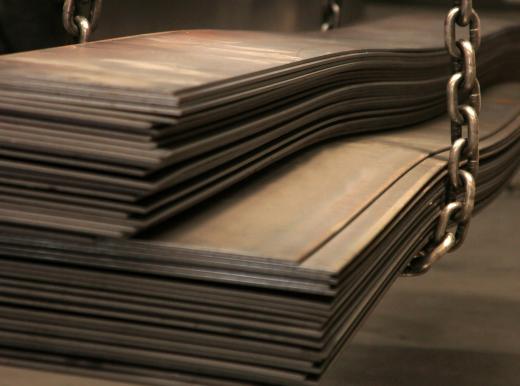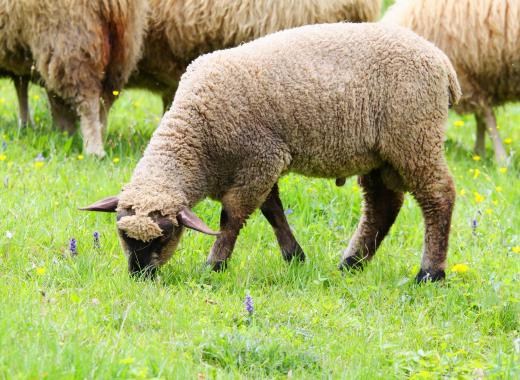A shearing machine is one of two things; an industrial machine that cuts metal or a machine that cuts the wool off sheep. An industrial shearing machine generally presses blades down into metal sheets to punch out shapes. These shapes may be the desired end product or they may be the waste product. While shearing metal sheets is most common, other metallic objects may be processed in one of these machines. A sheep-shearing machine may be anything from a pair of small clippers similar to ones found in a barber shop to a large machine that features an external power supply and multiple clipping arms.
A metal shearing machine uses sharp blades and a lot of pressure to quickly cut shapes out of metal. The blades on a shearing machine are typically directly perpendicular to the surface getting punched. This maximizes the applied force and maintains an even cut. Some shearing machines operate like a pair a scissors. This shearing style is less common, as the pressure isn’t evenly applied to the metal.

Depending on the quality and thickness of the sheared material, the blades on the shearing machine may be of a higher-quality metal. The general rule for metal cutting is that the blades must be harder than the material being cut, but this rule doesn’t always hold true in a shearing machine. Since the cut is so fast and the pressure is so high, steel can often cut steel with little problem. Still, some machines use special steel or carbide alloys for their blades.

While the majority of shearing machines cut sheet metal, some cut other metal forms. The most common metal behind sheets is metal bars. These bars are often very long, and the shearing machine cuts them into more manageable lengths for use in other machines. Other machines focus on nearly-finished parts; they cut along edges to remove burs or leftover material from earlier manufacturing processes.
The smaller forms of sheep-shearing machines are hand-held and come with a battery pack or a cord to a wall outlet. These machines have sets of razor-sharp metal blades that move back and forth very quickly. These blades are under a protective guard that prevents the user from cutting himself or the sheep by mistake. The user runs the machine over the sheep’s body, removing the wool as close to the skin as possible. A large sheep-shearing machine works the same way, except it typically consists of a central unit with multiple attached clippers and tools.
